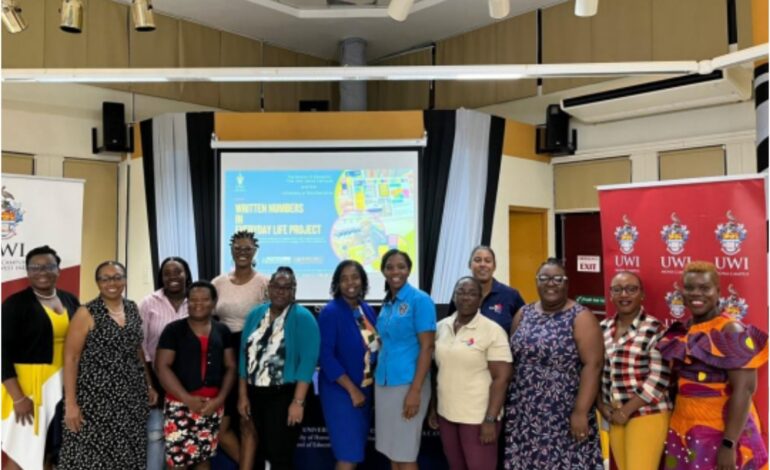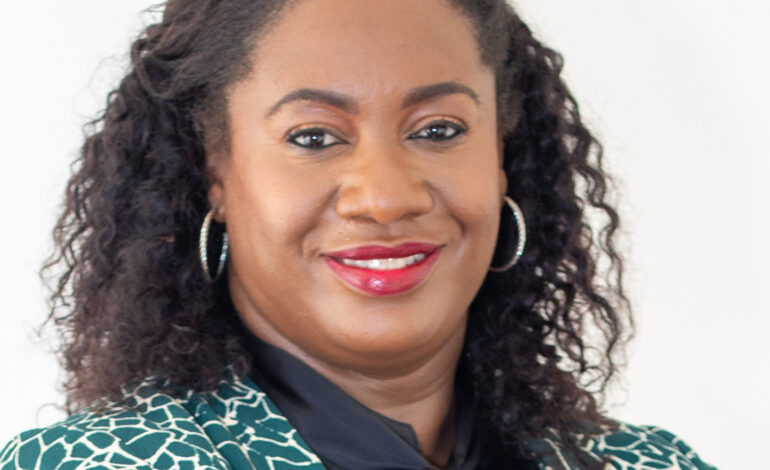
The Written Numbers in Everyday Life (NiEL) Project, a groundbreaking collaboration led by Senior Lecturer Dr. Lois George from The UWI, Mona, and Associate Professor Dr Charis Voutsina from the University of Southampton, celebrated its official launch on May 2, 2024. The project garnered rave reviews from early childhood teachers and principals.
Parents were equally enthusiastic about their kindergarteners’ progress during the project’s first cycle, which got underway in February and ran for six weeks. It involved around 120 parents and 20 teachers in five diverse early childhood institutions – three in Kingston, Jamaica, and two in the United Kingdom (UK). Part of The UWI, Mona’s School of Education’s initiative to address Jamaica’s longstanding issue of low math performance, the NiEL Project is seen as a potential catalyst for positive change.
For Ms Gayan Facey, a parent who sat on one of two panels during the launch, her three year-old son’s early exposure to numbers will lay a solid foundation for future math learning. The NiEL Project also taught him valuable life skills, the enthusiastic mother told the gathering. “He is now practically applying the concept of numbers. When he sees a number, he is able to identify it and he is able to apply it,” she boasted. In fact, Facey said her preschooler is able to unlock his tablet if she recites the numbers for the code. She is even teaching him how to unlock her mobile phone to allow him to dial emergency servicesmshould the need arise. “If anything should happen, and we are in the house [alone], I would like to know that he is able to identify the numbers and make a call,” Ms Facey added.
Ms Facey’s son was among scores of young children in Jamaica and the United Kingdom who participated in the project. “We implemented the programme with three schools and three partners,” said The UWI’s George, Lead Researcher on the Jamaica NiEL Project. Jamaica House Basic School, National Water Commission Cooperative Credit Union Basic School (NWCCUBS), and Bloom Early Childhood Centre embraced the programme and successfully sold it to their parents. “We ended up having three different approaches, and it wasn’t by choice,” the researcher recalled. “When I approached the principals,” Dr George said, “they decided how they were going to roll out the programme of activities in their schools. And so, we ended up with three different ways, which allowed us to have different types of data and different types of settings to evaluate.”
Jamaica House Basic School targeted the entire school population, which brought more than 100 parents onboard the project. Over at NWCCUBS, the project was implemented at a grade level (infant), while Bloom Early Childhood Centre enrolled only one class in the project. “We ended up seeing different ways in which the parents, teachers, and principals were not just implementing, but managing the programme,” Dr George added. Mrs Veronica Parkinson-Burnett, Principal, Jamaica House Basic School, was able to motivate her staff and parents to gain their buy-in and full support. She urged all the stakeholders to make the process fun, emphasising that early numeracy would set the right foundation for the children. “I was excited for the children who were going to be exposed to this challenge,” recalled Ms Lakeisha Coley, Principal, NWCCUBS. Ms Coley said she was particularly happy that the programme was designed to develop the children’s critical thinking skills.
The first cycle saw parents collaborating with principals and classroom teachers on the project, which opened the children’s eyes to how math applies to numbers in everyday life. The NiEL Project, which is designed for children aged three to five, helps busy parents fit regular conversations about numbers into their daily routines. For instance, a parent could be walking his or her three year-old to school, and a number on a gatepost or billboard turn into a teachable moment.
Over the period, the families followed a focused programme of evidence-based pedagogical activities, and were provided with free home learning booklets or activity cards to keep them on task, said Dr. Voutsina, the University of Southampton’s NiEL Project researcher. The teachers and principals would reinforce these at-home experiences with weekly classroom activities, which served to solidify and expand the children’s understanding of numbers. According to Dr. Voutsina, discussions like these help young children grasp different number concepts by comparing, contrasting, and generalising about the numbers they encounter in everyday life. “The role of our preschool partners is so very important in Jamaica,” added Dr. Voutsina, who joined the launch remotely.
Dr George said the Written Numbers in Everyday Life Project is poised to be scaled and expanded to include other elements on the curriculum such as shapes and spaces. The project will also be introduced in schools in the Eastern Caribbean, and Dr George is in discussions with her colleagues at The UWI Cave Hill Campus in Barbados to get this off the ground through its School of Education.
“We are looking forward to cycle two going throughout the length and breadth of Jamaica, and we’ll be able to do that with our partners – The Early Childhood Commission (ECC) and the Ministry of Education and Youth (MoEY)— who are here today,” Dr George continued. “We are also indebted to Waypoint Enterprises from the UK who has partnered with the project to cover the project’s shipping needs from the UK to the Caribbean,” the researcher added.
Meanwhile, Mrs Simone Williams, National Mathematics Coordinator, MoEY, said the NiEL Project supports the critical connection between home and school, a priority partnership area for the Ministry. “We at the Ministry of Education and Youth are pleased with the features and functions of this programme as we believe it is in line with our mission of fostering a deep appreciation for mathematics in classrooms across Jamaica,” Ms Williams stated. Training and Development Manager at the ECC, Ms Nicole Morgan, echoed similar sentiments. She said the ECC supports the partnership, and believes that “this pivotal movewill change the trajectory of numeracy level outcome” for this generation and beyond. The launch was held in the Multifunctional Room at The UWI Main Library.







